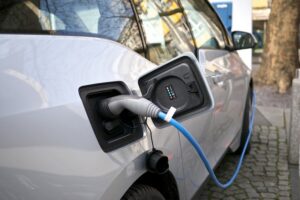Things change fast in the world of technology. Just think of the metamorphosis of a floppy data storage disk into a USB flash stick, or of the amount of computing power concentrated on your wrist in the form of a smart watch.
Nothing like that happened to batteries.
It’s not that the manufacturers are not trying. They are spending millions trying to make better batteries. With slim results. True, there have been advances in battery life, that is, the ability of our mobile devices to run longer on a single charge. However, this is mostly due to the energy-saving improvements made in the in the hardware and software of mobile devices, and far less to developments in the battery technology.

The problem is that batteries depend on chemistry, which does not progress in leaps in bounds (as technology does). Batteries are basically a mixture of metals and chemicals which, when connected, produce electricity. That principle has not changed from the time battery was invented two centuries ago. Until now, major battery advances came from using different materials. The latest one, lithium-ion, was introduced about two decades ago.
These rechargeable lithium-ion batteries are still the powerhouse of mobile technology world today…
There are lots of ideas for future battery technology. Some involve designing smartphone screens to act as solar chargers. Other aim to pull the power through air from TV sets or cellular and Wi-Fi signals, to harness the electricity from a person’s skin, and so on.
 Even if the research that is going on gives good results now, it will take years to fine-tune the final product and make it viable for use in real life. After all, one has to be very careful about carrying that mighty electricity producing plant of the future in one’s pocket.
Even if the research that is going on gives good results now, it will take years to fine-tune the final product and make it viable for use in real life. After all, one has to be very careful about carrying that mighty electricity producing plant of the future in one’s pocket.
Since batteries that charge in seconds and last for weeks or months are still a way off in the future, we’ll have to continue to rely on engineers to make even more energy efficient devices in order to satisfy our thirst for things that run on mobile power, from smartphones and smarthomes to smart wearables and electric cars.








